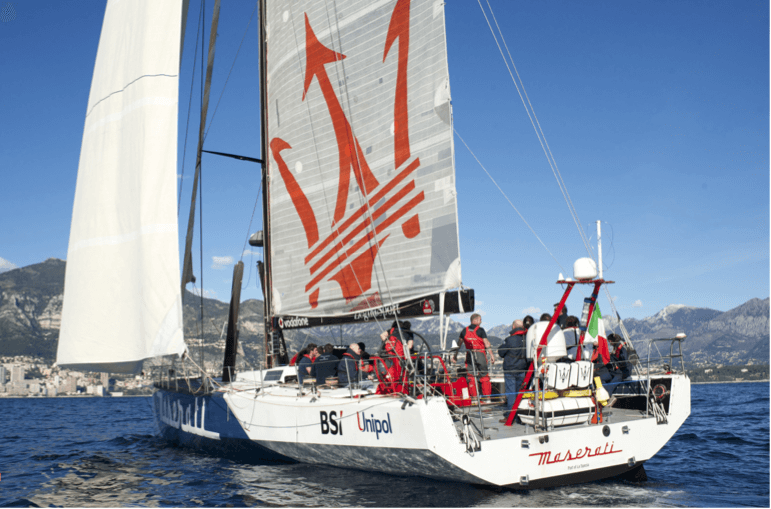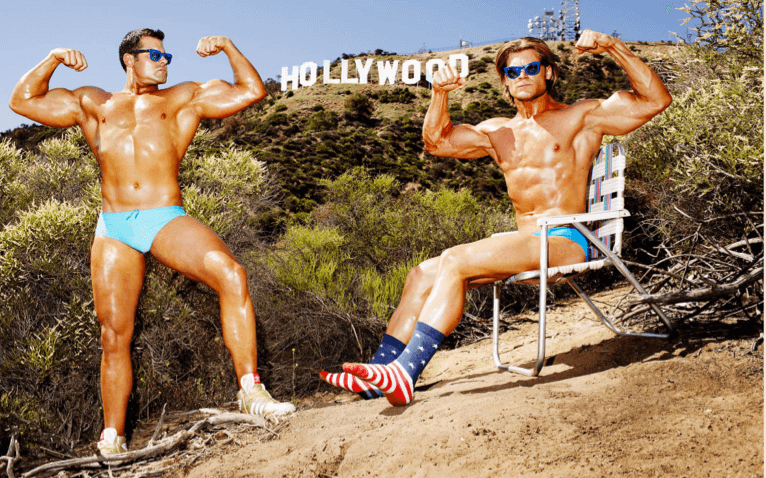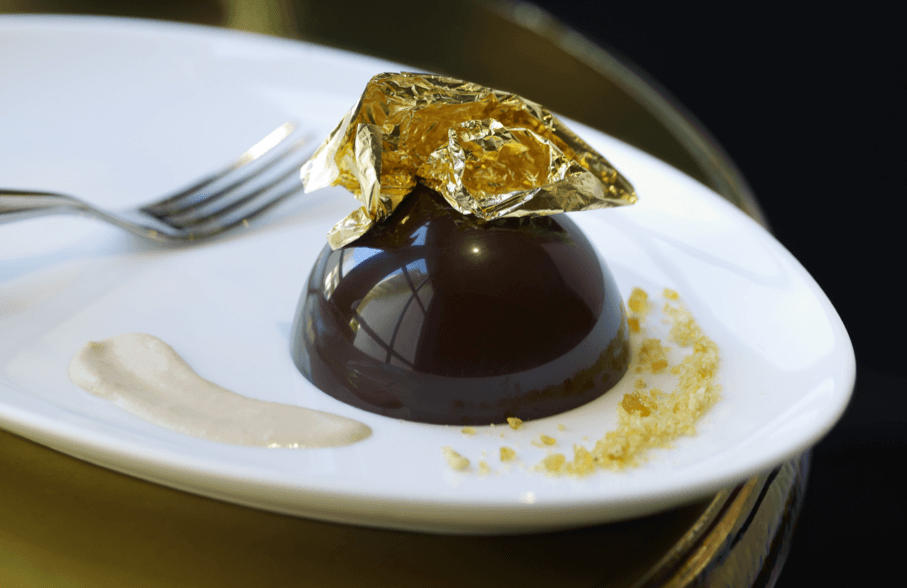Monaco is the place where yachtsmanship and money combine in an intoxicating and irresistible blend. Millie Walton is charmed by the sailors and owner of Maserati’s record-breaking yacht
The crew of the 70ft Maserati Yacht VOR70 are sitting around a table at Bistrot Le Bouchon, one of Monaco’s more understated restaurants. They have just sailed in from Barcelona and are sporting bodily evidence of the journey – a torn-off fingernail here, a badly swollen wrist there. But they speak with excitement about the boat’s ambitious 2015 racing programme, which culminates in the infamously challenging Rolex Sydney–Hobart Yacht Race, between mainland Australia and Tasmania.
Our dinner is an intimate introduction to the team before the main celebratory event, an uber-powerful affair featuring the crew of the yacht, the owner of Fiat, Maserati and Ferrari (the companies that is, not just single cars: that would be unexceptional in Monte Carlo), and one of Monaco’s royals – but more on that in a moment.
The crew are a fresh-faced gang from all across the globe: Andreas Axelsson (Sweden), Guido Broggi (Italy), Andrea Fantini (Italy), Oliver Herrera Perez (Canary Islands), Boris Herrman (Germany), Francesco Malingri (Italy), Gwen Riou (France), Corrado Rossignoli (Italy) – all picked for their expertise by Milan-born skipper Giovanni Soldini. The next 12 months will be a series of record attempts, including the San Francisco–Shanghai sprint in May, which retraces the 7,000-mile route across the Pacific Ocean used by the legendary clippers in the mid-19th century – there’s no room for error.
Soldini himself sits quietly in the midst, his salted black hair and sun-burnished skin betraying his extensive experience at sea, which includes two single-handed round-the-world races, one of which he won in remarkable fashion after making a diversion to save fellow competitor, Isabelle Autissier, who had capsized in the dangerously freezing waters. He was later awarded the Legion d’Honneur in Paris and the Medal of Honour in Rome. In total, he boasts more than 40 ocean crossings and is one of the few allowed to wear a gold ring in his left ear – a privilege granted only to sailors who have rounded Cape Horn, the southern-most tip of America.
At the event the next day, Pierre Casiraghi, the youngest son of Caroline, the daughter of Monaco’s late long-time ruler Prince Rainer and his wife Princess Grace, holds forth. Pierre’s father is the late Stefano Casiraghi, who was tragically killed, aged just 30, when his powerboat overturned during a race on the French Riviera in 1990. Despite this, Pierre is clearly unfazed about taking to high-level water sport, having already had a successful on-board experience in the Cape2Rio race last year. He marvels at his captain’s ability to maximize each of his crew’s individual talents: “He’s a very kind and generous man. He makes everything seem so fluid”.
The boat’s owner is John Elkann, chairman of Fiat Chrysler Automobiles, an empire which also encompasses Maserati and Ferrari. Elkann, who has just arrived from London, is smartly dressed in a blue suit with an eccentric bright orange waistcoat revealing his youthful approach to all things in life, not only business. He’s quietly spoken, giving an impression of humility, as he recounts the “unforgettable experience” of crossing the Atlantic from the Canaries to the Caribbean in 2009 with Soldini. He speaks of an irreplaceable bond with the crew, the type of which can only be formed through shared struggle and perseverance.
Together, they have come to be recognized as one of the world’s most successful and impassioned racing teams, extending Maserati’s market quite literally to further seas. “It’s an exciting and challenging year for the VOR70 and for Maserati,” explains Elkann. “After growing sixfold in terms of volume and luxury market coverage in the last two years, we will be looking to keep that momentum going, especially in the US and Asia.”
In keeping with its trident logo, most commonly associated with Neptune, the god of the sea, the Maserati yacht aesthetically evokes a sense of power and awe, fitting with Maserati’s reputation for exceptionally beautiful designs. The interiors of the monohull, however, tell a different story – one of hard work and competitive sportsmanship, with basic bunk beds, little to no lighting (it takes a sure-footed sailor indeed to navigate through the cubbyholes) and a very simplistic kitchen. No bathroom, no luxuries – a giant leap from the plush extravagance of the shining new Yacht Club de Monaco, where Maserati has an exclusive lounge space as the club’s official car. The challenging aspect of sailing though, Elkann explains, “perfectly expresses the values of passion, emotion and innovation that are intrinsic to Maserati”. Select customers can see this themselves on the unique Drive&Sail experience: sailing on the Maserati VOR70 with Soldini, and then driving the latest models in the Maserati range. Surf and turf indeed.
Strike a pose, there’s nothing to it – the market in photography is booming like never before, and even major museums, art institutions and auction houses want to get in on the action. Collectors take heed, says our columnist Jean-David Malat
The art market used to be very cautious about photography, but the tendency is now shifting – The Telegraph reported a 36 per cent increase of auction sales of photography in 2014. Slowly but steadily, the market and its collectors are opening up to fine art photography. On the one hand, this means that prices for artworks of this genre are going up and that we are witnessing auction records more and more regularly – how to forget Andreas Gursky’s Rhein II (1999), which became the most expensive photograph ever sold at auction when it reached $4.3 million at Christie’s New York in 2011? On the other hand, however, one notices that this young market is still relatively much more affordable than the market for fine art painting or sculpture, for example. This makes it a very attractive field, therefore, for the new collectors and art professionals, who observe a real desire for fine art photography internationally.
Reaffirming the market’s observations, major museums and trusted institutions have also been giving much more attention to the photographic genre, with large-scale exhibitions of historical and contemporary fine art photography. Founded in 1971 The Photographers’ Gallery underwent a major expansion in 2012, which made it the largest public gallery in London dedicated to photography. It focuses its activity on promoting emerging talents, conserving historical archives and exhibiting established photography artists.
This summer another landmark of the UK’s art and culture scene, London’s National Portrait Gallery, will launch an exhibition entirely devoted to photography of Audrey Hepburn. ‘Audrey Hepburn: Portraits of an Icon’ will feature a selection of more than 60 photographs, including classic and rarely seen prints by leading photographers such as Richard Avedon, Cecil Beaton, Terry O’Neill, Norman Parkinson and Irving Penn.
Responding to this tangible – even pressing – demand from collectors, Opera Gallery has historically supported contemporary photographers: Gérard Rancinan, Olivier Dassault, Fani Alireza and Zoé Flore among others. More recently, the gallery started working with major figures of the genre. In Monaco in 2013 we held an exhibition by Terry O’Neill, one of the world’s most collected photographers whose work hangs in national art galleries and private collections worldwide. Since 2014 we are also delighted to be able to offer works by David LaChapelle to our clients. Probably one of the most famous living photographers, LaChapelle has exceptional talent combining a unique hyper-realistic aesthetic with profound social messages. He is also very prominent for his striking and stylish portraits of celebrities, of course!
Alongside what one could call ‘traditional’ art photography, fashion photography has made an entrance and is demanding its letters of nobility. And collectors across the world are responding with eagerness and enthusiasm!
It is this realization that made us at Opera Gallery London decide to curate an exhibition of contemporary photography, shining a light on some of the most sought-after artists of the field. Titled ‘Raw Footage’, the exhibition focuses on fashion-turned-art photography as well as on celebrity portraiture, both of which are fascinating evidence of the evolution of our cultural history. We have sourced works by some of the hottest fashion photographers of the moment, such as Vincent Peters, Tony Kelly, Mario Testino, David LaChapelle, Gavin Bond, Greg Williams, Simon Emmett, Douglas Kirkland and, of course, UK sweetheart Rankin.
Through the selected works, we interrogate how fashion photographers and their collaborators – designers, stylists, models and viewers – participate in disseminating our culture and defining our aesthetics. Alongside them, we will feature other photography geniuses: Nicolas Guérin and his mesmerizing ‘Polaroid Dreams’ series; Paul Solomons who, although he comes from the fashion world, takes a very different approach to photography, working with repetition and pattern-making; and Gérard Rancinan, self-described “active witness” to humanity, who states he works against the obliteration of our collective memory. All of these fascinating and inspiring image- makers are being brought together to capture an image of our times and to shine a light on beauty and its unattainable status.
Beyond that, the exhibition will reaffirm our strong confidence in the burgeoning market of photography, as an art that is both affordable – an aspect that is especially attractive to new collectors – and also a rather safe and sound investment: ArtTactic reported in June 2014 that “the confidence in the Contemporary Photography market continues to improve with an increase of 10 per cent since December 2013, reaching the highest reading since March 2011”. And if a photograph is also depicting a scene, celebrity or subject you admire and can lose yourself in, then the investment is doubly positive: a financial placement as well as an emotional commitment.
Jean-David Malat is an art dealer and curator, and the director of London’s Opera Gallery. operagallery.com
Presiding over a global restaurant empire, spanning Bahrain to Boston, Wolfgang Puck is one of the world’s most celebrated chefs. He speaks to Alice Clarke about food, family, canned pineapple and Coco Chanel

Top Tables
Wolfgang Puck’s restaurants include Hotel Bel-Air in Los Angeles (above), and CUT at 45 Park Lane, London
Alice Clarke: Did you love cooking as a child?
Wolfgang Puck: My mother was a chef and I helped her to cook at home. I loved pastries and sweets more than anything back then. When I was 14 I left home to start an apprenticeship with a chef 50 miles away. That was a long way and it was hard when you had to work on the weekend and all your friends were playing or going skiing. It was only when I went to France that I realized that this is what I wanted to do. I was working in a restaurant in Provence called L’Oustau de Baumanière, which had three Michelin stars and was run by the legendary Raymond Thuilier.
AC: Do you look back and think of Thuilier as your mentor?
WP: Yes, he was in a way. I remember when I came to Los Angeles with a friend who’d also worked there and we said, ‘OK, we’re going to open a restaurant like Baumanière’.
AC: It’s interesting to see how some chefs have been so influenced by those who they trained under.
WP: Well, I think you get into a certain style and if you’re happy with it, you don’t change. For me it was different – I always tried to experiment and do new things. That’s why I’ve been married three times! Just kidding… But with regards to restaurants, I was interested in so many different things. After I’d opened Spago [in West Hollywood in 1982] I didn’t want to open another branch next, that would be too boring. Instead, I wanted to have a Chinese restaurant, so I launched Chinois [in Santa Monica, 1983], which was the first Asian-American fusion restaurant. I didn’t even know how to make fried rice at the time but I said, ‘I’m going to learn my own way’.
AC: Is there one particular cuisine that you enjoy the most?
WP: I love spices, but I also love the simplicity of a restaurant like CUT [with branches in Beverly Hills, Las Vegas, London, Bahrain, Dubai and Singapore], where you know exactly what you’re getting and it’s the best quality. It’s almost like if you get a great dress and it fits perfectly, you don’t need too much jewellery. Or if you have great earrings, you don’t need a necklace or rings. Coco Chanel said that before you leave the house, you should take two things off; that way you’re going to look better. I think it’s the same with food. If we pair it down, make it more minimalistic, it’s often better.
AC: There seems to be a real movement towards organic, fresh, sustainable food at the moment. Are you on board with that?
WP: Well, I grew up on a farm in Austria, so when we had salad we got it from the garden, and if we had vegetable soup we picked some carrots, cauliflower, beans or whatever, cut them up and made soup. So for me, there has never been anything so new about that. What was exotic and interesting was canned pineapple. I remember the first time somebody bought me canned pineapple from Hawaii, I thought: ‘Wow that’s exotic, that’s amazing’. I opened it and ate it really slowly. When I was younger we went to the forest and picked raspberries, blueberries, blackberries and white strawberries. In early spring my mother planted radishes and things like that, so by Easter we had the first fresh salad. Now all of a sudden in America everyone talks about ‘from farm to table’. I’ve never known anything different!

Fresh Start: Proving breakfast is the most important meal of the day, CUT is also a top spot for brunch
AC: Do you cook to relax?
WP: Oh yes. When I tell people I cook at home they say, ‘What do you mean? Don’t you already do enough?’ But I really like it. My children love it, too. My nine-year-old loves food. If he doesn’t get out of bed, I tell him I’m going to make scrambled eggs without him. He jumps up, comes downstairs, breaks the eggs, and has to cook it with me.
AC: Are there any chefs at the moment who you are particularly impressed by?
WP: I think Grant Achatz is one of the most talented chefs in America. He makes his own thing, a little bit out there, but very interesting– like Heston [Blumenthal] with The Fat Duck.
AC: What is your latest cookbook about?
WP: Wolfgang Puck Makes it Healthy is about eating better and exercising. I go skiing with the likes of [downhill champion] Franz Klammer but for about nine years, even if we weren’t going fast, I had to keep stopping to breathe. Similarly, I was playing tennis in Maui, where it is quite hot and humid, and after about 10 minutes I had to sit down as I couldn’t breathe anymore. I thought to myself, ‘I have to change my lifestyle and also start to exercise and eat better’. This book is really a result of that.
AC: How do you get people to eat more healthily?
WP Even if you go to a cheap grocery store, that’s still better than buying canned or frozen food. We should say to ourselves, ‘Okay, I like rice, why don’t I buy brown rice’, which has more flavour and is better for you. And the same with pasta. Once you get used to eating wholewheat pasta, you realize it’s really tasty and all of a sudden you think regular pasta is bland. So little by little you can try things out and begin to understand what is good and not so good for you. I also think that, in America especially, the portion sizes are too big. People think they have to eat a lot, but they don’t. In fact, they say you actually live longer if you eat less.
AC: You do a lot of charity work. Can you tell us about your philanthropic endeavours?
WP:In 1982 we started to do events with some chefs and wineries, so we called it The American Food and Wine Festival. We donated the money raised to ‘meals on wheels’, which provides food for old people, for people who don’t have any money and so on. We then started a cancer benefit for people who can’t go to hospital for treatment. We do a big event in Las Vegas for Alzheimer’s sufferers, because my mother had Alzheimer’s. We also do a big event in Cleveland for children at a cancer clinic there, too. We do a lot of work with schools, plus my wife has an orphanage accommodating 700 children in Ethiopia. So that alone is quite a lot of work!

Shooting Stars: Spago in Beverley Hills is one of only three restaurants in LA to hold two Michelin stars
AC:Do you find it hard to juggle everything?
WP:Sometimes, yes, it’s complicated and difficult. I have very good people who have worked with me for a long time though, so that helps.
AC: What has been your favourite meal recently?
WP: I had dinner last night at Alain Ducasse’s latest restaurant at the Plaza Athénée in Paris. I liked it a lot because it was so different; it was a really interesting experience. Sometimes the whole experience is better than each dish. I told them I only had one hour and they served me 10 different dishes. Three-star fast food!
AC: Your first restaurant, Spago, opened in 1982. Do you still feel as inspired by food today as you were back then?
WP Oh yes, I still love it just as much. If not, I wouldn’t be here.
Recent Posts
Archives
- July 2025
- June 2025
- May 2025
- April 2025
- March 2025
- February 2025
- January 2025
- December 2024
- November 2024
- October 2024
- September 2024
- August 2024
- July 2024
- June 2024
- May 2024
- April 2024
- March 2024
- February 2024
- January 2024
- December 2023
- November 2023
- October 2023
- September 2023
- August 2023
- July 2023
- June 2023
- May 2023
- April 2023
- March 2023
- February 2023
- January 2023
- December 2022
- November 2022
- October 2022
- September 2022
- August 2022
- July 2022
- June 2022
- May 2022
- April 2022
- March 2022
- February 2022
- January 2022
- December 2021
- November 2021
- October 2021
- September 2021
- August 2021
- July 2021
- June 2021
- May 2021
- April 2021
- March 2021
- February 2021
- January 2021
- December 2020
- November 2020
- October 2020
- September 2020
- August 2020
- July 2020
- June 2020
- May 2020
- April 2020
- March 2020
- February 2020
- January 2020
- December 2019
- November 2019
- October 2019
- September 2019
- August 2019
- July 2019
- June 2019
- May 2019
- April 2019
- March 2019
- February 2019
- January 2019
- December 2018
- November 2018
- October 2018
- September 2018
- August 2018
- July 2018
- June 2018
- May 2018
- April 2018
- March 2018
- February 2018
- January 2018
- December 2017
- November 2017
- October 2017
- September 2017
- August 2017
- July 2017
- June 2017
- May 2017
- April 2017
- March 2017
- February 2017
- January 2017
- December 2016
- November 2016
- October 2016
- September 2016
- August 2016
- July 2016
- June 2016
- May 2016
- April 2016
- March 2016
- February 2016
- November 2015
- September 2015
- June 2015
- May 2015
- March 2015
- September 2014
- August 2014
- July 2014
- May 2014
- April 2014
- March 2014
- February 2014
- January 2014
- December 2013
- November 2013
- October 2013
- September 2013
- August 2013
- July 2013
- June 2013
- April 2013
- March 2013
- February 2013
- September 2012
- July 2012
- June 2012
- March 2012
- February 2012
Categories
- Adventure Travel Issue
- Aesthete Issue
- Architecture
- Art & Design
- Art & Photography
- Art collectors
- Autumn 19
- Autumn/Winter 2020/2021
- Autumn/Winter Issue
- Bespoke Issue
- Business
- Cars
- Cars & Collectibles
- Case Study
- Celebrities
- Culture
- Culture Issue
- Design Issue
- Dining Issue
- Earth Issue
- Family Issue
- Fashion & Jewellery
- Features
- Food
- Future Luxury Issue
- Health
- Hedonism Issue
- Image Issue
- Italy Issue
- Latest Stories
- Leaders & Philanthropists
- Leaders Slider
- Love Issue
- Luxury Travel Issue
- New Luxury Issue
- Online Exclusive Slider
- Opinion
- Spring 2020
- Summer 19 Issue
- Summer 2020
- Summer 2021
- Sustainability
- Taste Issue
- The Beauty Issue
- Travel
- Uncategorized
- Water Issue
- Winter 19 Issue
Popular Posts
Categories
- Adventure Travel Issue
- Aesthete Issue
- Architecture
- Art & Design
- Art & Photography
- Art collectors
- Autumn 19
- Autumn/Winter 2020/2021
- Autumn/Winter Issue
- Bespoke Issue
- Business
- Cars
- Cars & Collectibles
- Case Study
- Celebrities
- Culture
- Culture Issue
- Design Issue
- Dining Issue
- Earth Issue
- Family Issue
- Fashion & Jewellery
- Features
- Food
- Future Luxury Issue
- Health
- Hedonism Issue
- Image Issue
- Italy Issue
- Latest Stories
- Leaders & Philanthropists
- Leaders Slider
- Love Issue
- Luxury Travel Issue
- New Luxury Issue
- Online Exclusive Slider
- Opinion
- Spring 2020
- Summer 19 Issue
- Summer 2020
- Summer 2021
- Sustainability
- Taste Issue
- The Beauty Issue
- Travel
- Uncategorized
- Water Issue
- Winter 19 Issue















Recent Comments